| Listing 1 - 10 of 30 | << page >> |
Sort by
|
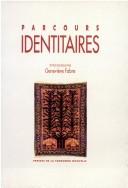
ISBN: 2878540611 2878548752 Year: 1994 Publisher: Paris : Presses de la Sorbonne nouvelle,
Abstract | Keywords | Export | Availability | Bookmark
 Loading...
Loading...Choose an application
- Reference Manager
- EndNote
- RefWorks (Direct export to RefWorks)
La quête identitaire passe le plus souvent par la confrontation à l'autre. Celle des groupes ethniques dans les Etats-Unis d'aujourd'hui est étudiée ici comme un déplacement à travers un espace, privé ou public, dont les limites, les frontières, les repères et les codes sont constamment redéfinis. Quelques parcours exemplaires et singuliers sont analysés dans ce recueil - à partir de textes et de documents précis - afin de mieux cerner le travail de la mémoire et de l'imaginaire (individuels et collectifs), les rites de passage, la construction de sens et l'élaboration symbolique. Chaque trajectoire est imprimée de mouvements ambigus, complexes et contradictoires. Il se dégage de ces exemples une problématique de l'exil, de la rupture et des échanges culturels qui remet parfois en question les modèles proposés ou prescrits par la société dominante.
Ethnicity --- Ethnicity in literature. --- American literature --- Minority authors --- History and criticism. --- groupes ethniques --- immigration --- communauté afroaméricaine --- quête identitaire --- États-Unis --- ETHNICITE --- ETHNICITE DANS LA LITTERATURE --- LITTERATURE AMERICAINE --- ETATS-UNIS --- 20E SIECLE --- THEMES
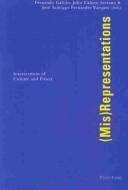
ISBN: 3906770753 Year: 2003 Publisher: Peter Lang,
Abstract | Keywords | Export | Availability | Bookmark
 Loading...
Loading...Choose an application
- Reference Manager
- EndNote
- RefWorks (Direct export to RefWorks)
LITTERATURE ANGLAISE --- LITTERATURE AMERICAINE --- REPRESENTATION (LITTERATURE) --- COMMUNICATION --- POUVOIR (SCIENCES SOCIALES) DANS LA LITTERATURE --- ANTHROPOLOGIE ET LITTERATURE --- RACE DANS LA LITTERATURE --- ETHNICITE DANS LA LITTERATURE --- POLITIQUE ET CULTURE --- HISTOIRE ET CRITIQUE --- HISTOIRE ET CRITIQUE --- CONGRES --- ASPECT POLITIQUE --- CONGRES --- CONGRES --- CONGRES --- CONGRES --- CONGRES --- LITTERATURE ANGLAISE --- LITTERATURE AMERICAINE --- REPRESENTATION (LITTERATURE) --- COMMUNICATION --- POUVOIR (SCIENCES SOCIALES) DANS LA LITTERATURE --- ANTHROPOLOGIE ET LITTERATURE --- RACE DANS LA LITTERATURE --- ETHNICITE DANS LA LITTERATURE --- POLITIQUE ET CULTURE --- HISTOIRE ET CRITIQUE --- CONGRES --- HISTOIRE ET CRITIQUE --- CONGRES --- CONGRES --- ASPECT POLITIQUE --- CONGRES --- CONGRES --- CONGRES --- CONGRES --- CONGRES --- CONGRES
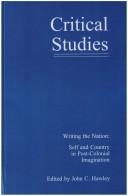
ISBN: 9051839383 Year: 1996 Volume: 7 Publisher: Amsterdam Rodopi
Abstract | Keywords | Export | Availability | Bookmark
 Loading...
Loading...Choose an application
- Reference Manager
- EndNote
- RefWorks (Direct export to RefWorks)
Thematology --- Culture in literature --- Ethnicity in literature --- Nationalism and literature --- Culture dans la littérature --- Ethnicité dans la littérature --- Nationalisme et littérature --- Developing countries --- Pays en développement --- Literatures --- History and criticism --- Littératures --- Histoire et critique --- Culture dans la littérature --- Ethnicité dans la littérature --- Nationalisme et littérature --- Pays en développement --- Littératures
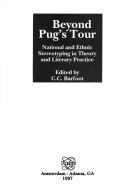
ISBN: 9042001550 Year: 1997 Volume: 20 Publisher: Amsterdam Rodopi
Abstract | Keywords | Export | Availability | Bookmark
 Loading...
Loading...Choose an application
- Reference Manager
- EndNote
- RefWorks (Direct export to RefWorks)
Sociology of literature --- Thematology --- Psychological study of literature --- Ethnicity in literature --- Ethnicité dans la littérature --- Etnisch bewustzijn in de literatuur --- Nationalism in literature --- Nationalisme dans la littérature --- Nationalisme in de literatuur --- Stereotype (Psychologie) dans la littérature --- Stereotype (Psychologie) in de literatuur --- Stereotype (Psychology) in literature --- Literature and society --- Social psychology in literature --- Stereotypes (Social psychology) in literature
Book
ISBN: 0820309532 Year: 1987 Publisher: Athens, GA : University of Georgia Press,
Abstract | Keywords | Export | Availability | Bookmark
 Loading...
Loading...Choose an application
- Reference Manager
- EndNote
- RefWorks (Direct export to RefWorks)
Canon (Literature) --- Canon (Literatuur) --- Canons littéraires --- Literaire canon --- American poetry --- 20th century --- History and criticism --- Minority authors --- Poésie américaine --- POESIE AMERICAINE --- MINORITÉS --- GROUPE ETHNIQUE DANS LA LITTERATURE --- ETHNICITE DANS LA LITTERATURE --- 20e siècle --- Histoire et critique --- AUTEURS APPARTENANT A DES MINORITES --- ETATS-UNIS --- VIE INTELLECTUELLE
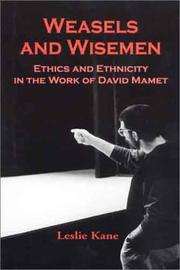
ISBN: 0312160860 Year: 1999 Publisher: New York St. Martin's Press
Abstract | Keywords | Export | Availability | Bookmark
 Loading...
Loading...Choose an application
- Reference Manager
- EndNote
- RefWorks (Direct export to RefWorks)
Ecoles dans la litterature --- Education dans la litterature --- Education in literature --- Ethics in literature --- Ethiek in de literatuur --- Ethique dans la littérature --- Ethnicity in literature --- Ethnicité dans la littérature --- Etnisch bewustzijn in de literatuur --- Opvoeding in de literatuur --- Scholen in de literatuur --- Schools in literature --- Mamet, David --- Criticism and interpretation --- Mamet, David, 1947 --- -Criticism and interpretation
Book
ISBN: 2921053845 Year: 1998 Volume: 13 Publisher: Québec : Nota bene,
Abstract | Keywords | Export | Availability | Bookmark
 Loading...
Loading...Choose an application
- Reference Manager
- EndNote
- RefWorks (Direct export to RefWorks)
French-Canadian fiction --- Canadian fiction --- American fiction --- Mexican fiction --- Ethnicity in literature --- Roman québécois --- Roman canadien --- Roman américain --- Roman mexicain --- Ethnicité dans la littérature --- Themes, motives --- Thèmes, motifs --- Roman québécois --- Roman américain --- Ethnicité dans la littérature --- Thèmes, motifs --- Themes, motives.
Book
ISBN: 2747552403 Year: 2003 Publisher: Paris : L'Harmattan,
Abstract | Keywords | Export | Availability | Bookmark
 Loading...
Loading...Choose an application
- Reference Manager
- EndNote
- RefWorks (Direct export to RefWorks)
Senegalese fiction (French) --- Nationalism in literature --- Ethnicity in literature --- Nationalism --- Ethnicity --- Roman sénégalais (français) --- Nationalisme dans la littérature --- Ethnicité dans la littérature --- Nationalisme --- Ethnicité --- History and criticism --- Histoire et critique --- Roman sénégalais (français) --- Nationalisme dans la littérature --- Ethnicité dans la littérature --- Ethnicité
Book
ISBN: 9780197620182 0197620183 Year: 2019 Publisher: New York (N.Y.) : Oxford university press,
Abstract | Keywords | Export | Availability | Bookmark
 Loading...
Loading...Choose an application
- Reference Manager
- EndNote
- RefWorks (Direct export to RefWorks)
In Artificial Color, Catherine Keyser examines the early twentieth century phenomenon, wherein US writers became fascinated with modern food-global geographies, nutritional theories, and technological innovations. African American literature of the 1920s and 1930s uses new food technologies as imaginative models for resisting and recasting oppressive racial categories. In his masterwork Cane (1923), Jean Toomer follows sugar from the boiling-pots of the South to the speakeasies of the North. Through effervescent and colorful soda, he rejects the binary of black and white in favor of a dream of artificial color and a new American race. In his serial science fiction, Black Empire (1938-39), George Schuyler associates hydroponics and raw foods with racial hybridity and utopian futures. The second half of the book focuses on white expatriate writers who experienced local food cultures as sensuous encounters with racial others. Ernest Hemingway and Gertrude Stein associate regional European races with the ideal of terroir and aspire to transplantation through their own connoisseurship. In their novels set in the Mediterranean, F. Scott and Zelda Fitzgerald both dramatize the white body's susceptibility to intoxicating and stimulating substances like wine and coffee. For Scott Fitzgerald, the climatological and culinary corruption of the South produces the tragic fall of white masculinity. For Zelda, by contrast, it exposes the destructiveness and fictitiousness of the white feminine purity ideal. During the Great Depression and the Second World War, African American writers Zora Neale Hurston and Dorothy West exposed the racism that shaped the global food industry and the precarity of black labor. Their engagement with food, however, insisted upon pleasure as well as vulnerability, the potential of sensuous flesh and racial affiliation.
Aliments dans la littérature. --- American fiction --- American fiction. --- Ethnicity in literature. --- Ethnicité dans la littérature. --- Ethnische Identität --- Food habits in literature. --- Food in literature. --- Habitudes alimentaires dans la littérature. --- Lebensmittel --- Literatur. --- Nahrung --- Race dans la littérature. --- Race in literature. --- Roman américain --- White people --- History and criticism --- Histoire et critique --- Race identity --- In literature. --- 1900-1999. --- USA.

ISBN: 0826513026 Year: 1997 Publisher: Nashville, Tenn. Vanderbilt University Press
Abstract | Keywords | Export | Availability | Bookmark
 Loading...
Loading...Choose an application
- Reference Manager
- EndNote
- RefWorks (Direct export to RefWorks)
Sociology of literature --- American literature --- anno 1900-1999 --- Caribbean Area --- Ethnic groups in literature --- Ethnicity in literature --- Ethnicité dans la littérature --- Ethnische groepen in de literatuur --- Etnisch bewustzijn in de literatuur --- Groupes ethniques dans la littérature --- Minderheden in de literatuur --- Minorities in literature --- Minorités dans la littérature --- Caribbean American authors --- History and criticism --- Caribbean Americans --- Intellectual life --- 20th century --- Alvarez, Julia --- Thomas, Piri --- Vega, Bernardo --- American poetry --- Cuban American authors --- Hijuelos, Oscar --- García, Cristina --- Caribbean area
| Listing 1 - 10 of 30 | << page >> |
Sort by
|

 Search
Search Feedback
Feedback About UniCat
About UniCat  Help
Help News
News